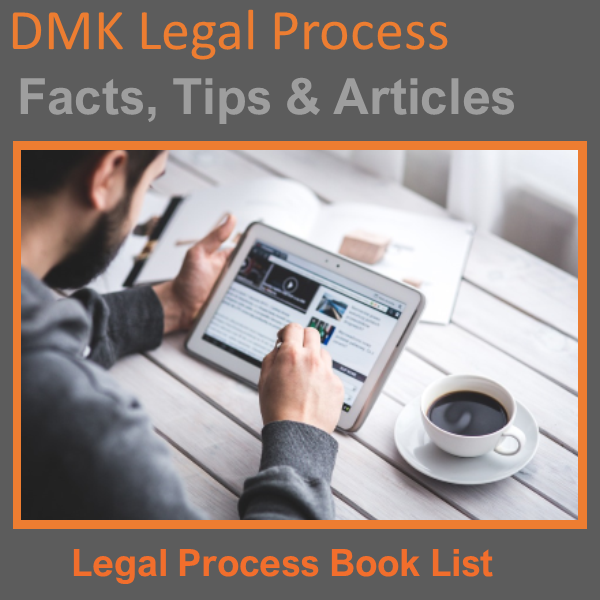Where are you going to live? How will your children acclimate to your divorce? Where will the money come from to pay your bills? Will you ever find love again?
Divorce is a consuming, exhausting, and expensive life changing event. Questions constantly circle in your mind about yesterday and today. While you may think you're considering your family's future when negotiating your settlement, life insurance is a common topic that fails to emerge during the process.
Don't let this happen to you
Carlita was a loving, single mother of a bright high school senior named Luna. Luna was getting prepared to graduate and go away to college.
Like many responsible parents, Carlita had term and accidental life insurance policies in the event something happened. She didn't want her daughter to struggle like she did when Luna's father died years ago without life insurance.
When she remarried, her new husband convinced her to change her beneficiary to him. They had only been married for three years when Carlita asked for a divorce following his infidelity. While she stayed focused on getting the best settlement possible, her life insurance policies were never mentioned or included in the settlement.
Sadly, when Carlita died in a tragic car accident, her then 18-year-old daughter was awarded nothing from the policies while Carlita's ex-husband, Luis, was awarded nearly one million dollars, the combined amount for both policies listing him as the only beneficiary.
Carlita's daughter had to move in with her aunt and attend a local community college, giving up a large, partial scholarship to the university she was formerly going to attend. While the money originally designated for Luna's tuition paid for the funeral, her grandmother and aunt had to take loans to pay for other costs associated with settling Carlita's estate.
The family attempted to sue Carlita's ex, but unfortunately, they didn't have the money to fight Luis in court.
Life Insurance and Divorce
Don't let your soon-to-be-ex-spouse get the advantage over you through your life insurance. Clarification of the details of any and all life insurance policies owned by each spouse should be established when divorcing. Common questions to ask,
- Who will be the policy owner following the divorce?
- Will the policy change involve a transfer of ownership?
- What are any restrictions, conditions and/or costs upon transfer of ownership?
- Is there a limitation of ownership?
- Will there be rights to the policy that may be affected upon changes in ownership, designations, limitations, and restrictions of named beneficiaries?
- Will the policy revert to the original owner at some future time (i.e. remarriage, end of child support)?
- Are there changes to beneficiaries, if so, will the policy owner have the right to make said changes?
- Are there any limits and/or restrictions upon who may be named beneficiary and do such limits and restrictions have a termination date or event (i.e. remarriage, death, end of support)?
- Does the named beneficiary need to be designated by the policy holder creating an irrevocable beneficiary?
- Do designations change or end when child support ends if the beneficiaries are children supported by the policy holder?
- Upon maturation of the policy, who will be entitled to receive the proceeds, when applicable?
- Who will be responsible for paying insurance premiums and/or fees associated with policy maintenance? How long?
- Are there loans against the policy and if so, who will be responsible for repayment of the loan (including terms, if any)?
- What are the terms regarding paying and failure to pay specified premiums by the paying spouse (i.e. proof of payment, specified time payment needs to be made, consequence of failure to pay and forms of evidence of payment)?
Divorce court fairies really do not exist
Divorce is a formal procedure that splits one whole into halves. However, many have the failed notion that since the courts are involved and a judgement of relief is established, all the powers that be (including but not limited to: insurance companies, creditors and banking institutions) not only get informed of the court's judgement, but also adhere to the designations of ownership, changes in ownership and/or terms. Consequently they believe these entities/individuals are bound to the terms of the agreement and/ or judgement in which the agreement is made part of and/or included with upon divorce.
This. Is. Not True.
Consulting with a local attorney may clarify how state laws affect your rights when divorcing. It can help you understand the difference between a legal contract, its necessary components to make it enforceable and how a court can enforce specific performance of said contract. It can also differentiate a contract from a judgement and provide context to the differences of enforceability between the two.
The simple truth is that a divorce judgement and/or agreement between the parties, prior to a court order (such as upon separation), is between those two parties only and has no bearing, to include enforceability on other individuals (other than the marital children), policies, accounts and/or entities named within the terms of the separation agreement, settlement agreement and/or terms established by the court and made part of the Final Judgement of Divorce. Moreover, other than the petitioner, respondent, their representatives, divorce professionals and the court, others are not generally notified of the terms that may affect or included them as part of the contract or judgement.
These may include contracts, agreements, court orders with or without specific terms regarding who is responsible to pay installments - premiums - fees - portion(s) and/or totality of amounts due, responsibility to insure, make changes to accounts and policies to include ownership, rights, and restrictions and/or legally establish responsibility of debts, costs/fees, etc.1.
1. Note that if agreements/contracts between you, your spouse and another party include terms relevant to your divorce and/or changes occurring because of your divorce, those terms may be enforceable and affect some or all of the above and may have other legal consequences. Your careful examination of ALL policies, contracts, and agreements along with review and advice by a local legal counselor may help you avoid associated problems.
How does this affect your life insurance policies?
This means, while your divorce agreement(s) may have established terms relevant to you and/or your spouses policies and/or added some additional terms as prescribed by your legal advisor or through mediation, you and your spouse are responsible to notify the company that currently holds any/all life insurance policies affected by your divorce. Remember to consider limits on time periods to do so when negotiating said changes. Consult a local attorney and your insurance agent for more details.
Final fast facts about divorce and life insurance
- Consider requesting the paying spouse obtain life insurance in an amount that provides for the children or other spouse (i.e. child support, maintenance) in the event of death of the paying spouse.
- Note that naming a child as a beneficiary who is under the age of 18 may result in the proceeds being managed by a guardian appointed by the probate court until the child is of age.
- Consider any terms of your insurance policy that are related to divorce or changes associated with your divorce (specifically those that affect policy ownership, maturity date, designations and/or premiums).
- Note that failure to specify changes to your life insurance in your divorce agreement/judgement does not automatically negate your ability to make changes later, but it will need to be done with the cooperation of your former spouse and may result in his/her advantage regarding those changes.
- Policies established during marriage and any cash value thereof is generally considered marital property and part of the couple's debt and asset allocation.
- Regardless if the final judgement names the former spouse as a beneficiary of a life insurance policy, failure to make changes with the insurance company following the death of the insured may result in a legal action between the ex-spouse and the insurance company and/or heirs of the insured that could take months or years with no guarantee the court will find in favor of the surviving ex-spouse.
- Failing to change designations of beneficiaries on a spouse's life insurance policy could result in a surviving ex-spouse receiving all or a portion of the insurance proceeds upon death of the insured if that insured never removed the former spouse as a beneficiary on his/her policy. This could leave a current spouse and/or other heirs with less or no proceeds upon death of their loved one.
- While some state laws, agreements/contracts/terms may supersede our suggestions, the idea we hope to convey is to carefully review all insurance documents and employee benefits (along with other important financial matters and documents) that may be affected, changed, terminated upon divorce and/or those with named beneficiaries. Consult your HR specialist, policy advisor and/or financial expert for clarification and a legal advisor to explain your legal rights, obligations, and consequences as they pertain to these benefits, policies, and assets.
- Get to know the differences between whole, term, universal, variable, accidental and burial insurance. If you don't understand the type of policy you have, how can you negotiate it in or out of your settlement?
- Even if you do not choose to continue with your current plan and/or ask for its cash value, you can still leverage its value to attain something else you want in the divorce.
We are not attorneys
Laws vary from state to state, and each case, policy and circumstance is different. We hope this article provides a general foundation to start considering questions to ask your trusted advisors regarding your divorce as it applies to current or future life insurance. The information we provided is not guaranteed. Please review our disclaimer below this article and site disclaimers linked at the bottom of this page.
Disclaimer
The information provided by respective owner's ("we", "us" or "our) on Divorce Me Knot (referenced also as "DivorceMeKnot.com", "dmk", "DMK", "OurDMK.com", "OurDMK", "application" or "site") is for general informational purposes only and is subject to change with or without notice. All information on our site and application is provided in good faith, however we make no representation, guarantee or warranty of any kind, express or implied, regarding the accuracy, validity, adequacy, reliability, availability, or completeness of any information on the site or application.
The information in articles and all content on this site should not be considered psychological or behavioral health therapy, counseling or legal, financial, real estate, mortgage, insurance, or professional advice. It should not be used in place of professional advice from a licensed professional or credentialed expert. Providers of content on this site, herein known as "Contributors" (inclusive of, but not limited to writers, bloggers, editors, employees, developers, graphic designers, advertisers, partners, affiliates, references, experts, professionals, and site owners) are not legally liable for any misinformation, errors, or omissions. Names, details, and images may have been changed in the content of this site.
Under no circumstances should DMK and/or its Contributors have any liability to users of the site for any loss or damage incurred to users because of the use of this site or application or reliance of any information provided on the site or application. Use of the site or application and reliance on any information from the site or application is solely at the user's own risk.
For complete site disclaimers review "Disclaimers" on this site or click the link below.





 How to resolve AdBlock issue?
How to resolve AdBlock issue?